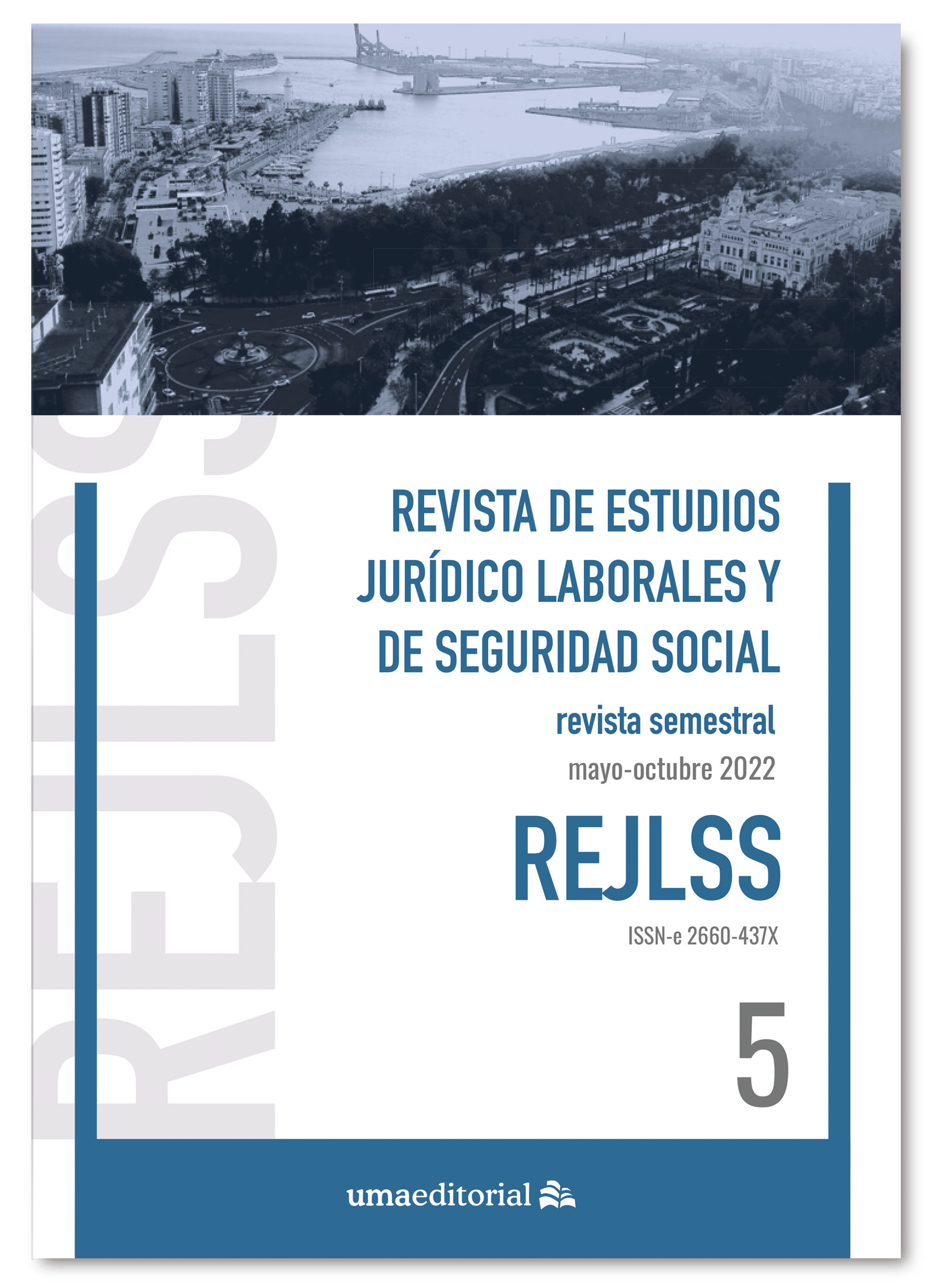Outsourcing and applicable collective bargaining agreement. The new article 42.6 of the Statute of Workers from the scope of three prior rulings of the labour chamber of the Supreme Court
DOI:
https://doi.org/10.24310/rejlss.vi5.14711Keywords:
outsourcing, subcontracting, collective bargaining agreement, outsourced activityAbstract
This paper provides a first approximation to the new section 6 of article 42 of the Statute of Workers, introduced by Royal Decree-law 32/2021, of 28 December. The analysis is based on three rulings of the labour chamber of the Supreme Court, since these were the judgements considered during the negotiations that resulted in the wording of RDL 32/2021. The paper reaches the following conclusions on article 42.6 SW: 1st) If the contractor or subcontractor have their own company-level collective bargaining agreement, it will apply in its own terms, provided that it is prior in time to the sector-wide collective bargaining agreement that applies to the outsourced activity. 2nd) In the opposite case (i.e., the company-level collective bargaining agreement is not prior in time), then the company agreement will apply but without priority on salary related matters. 3rd) If the contractor or subcontractor lack a company-level agreement, the sector-wide collective bargaining agreement applicable to them will apply pursuant to Title III SW. 4th) If the precedent criteria do not apply, then the sector-wide collective bargaining agreement of the outsourced activity will apply.
Downloads
Metrics
Publication Facts
Reviewer profiles N/A
Author statements
Indexed in
-
—
- Academic society
- N/A
- Publisher
- Universidad de Málaga. UMA Editorial
Downloads
Published
How to Cite
Issue
Section
License
In the Revista de Estudios Juridico Laborales y de Seguridad Social (REJLSS) we are clearly committed to a policy of open access to scientific knowledge (See Berlin Declaration).
Those authors who have publications with this journal accept the following terms:
This journal provides immediate free access to its content under the principle of making research freely available to the public. All the contents published in the REJLSS are subject to the Creative Commons license
Attribution-NonCommercial-NoDerivatives 4.0 International (CC BY-NC-ND 4.0)
Copyrights are of two kinds: moral and patrimonial. Moral rights are perpetual, inalienable, non-transferable, inalienable, unattachable and imprescriptible prerogatives. In accordance with Spanish copyright legislation, the authors who publish in REJLSS retain the moral right over their work, as well as the ownership of the patrimonial right, which will be transferred to the University of Malaga for its dissemination in open access.
The patrimonial rights, refer to the benefits that are obtained by the use or disclosure of the works. REJLSS is published in open access and is exclusively authorized to perform or authorize by any means the use, distribution, dissemination, reproduction, adaptation, translation or transformation of the work.
It is the responsibility of the authors to obtain the necessary permissions of the images that are subject to copyright.
Authors whose contributions are accepted for publication in this journal retain the non-exclusive right to use their contributions for academic, research and educational purposes, including self-archiving or depositing in open access repositories of any kind.
The electronic edition of this magazine is edited by the Editorial of the University of Malaga (UmaEditorial), being necessary to cite the origin in any partial or total reproduction.
The authors may adopt other non-exclusive license agreements for the distribution of the version of the published work (eg: deposit it in an institutional telematic archive or publish it in a monographic volume) provided that the initial publication is indicated in this magazine.
Authors are allowed and recommended to disseminate their work through the Internet (eg, in institutional telematic archives or on their website) before and during the submission process, which can produce interesting exchanges and increase citations of the published work.







19.png)
